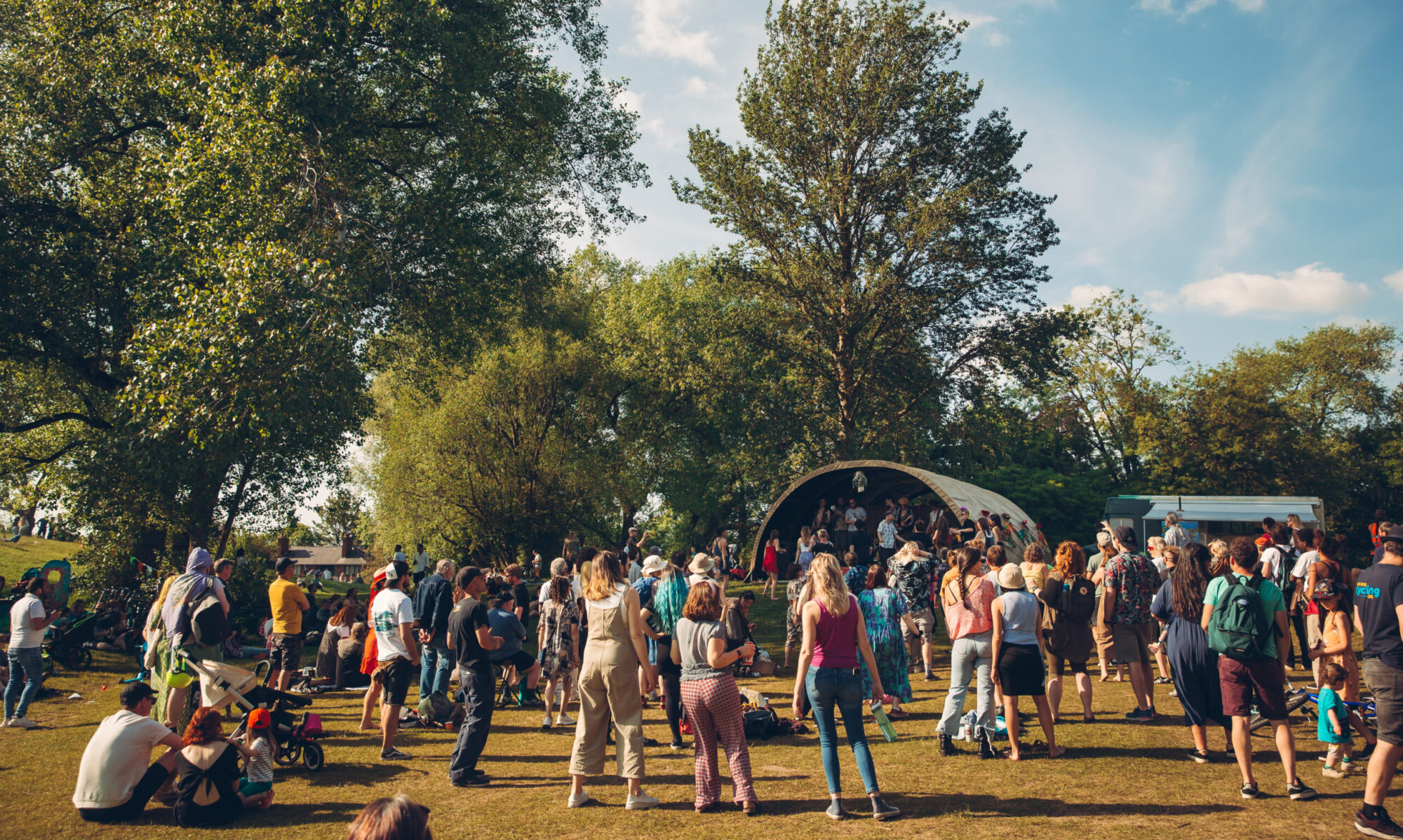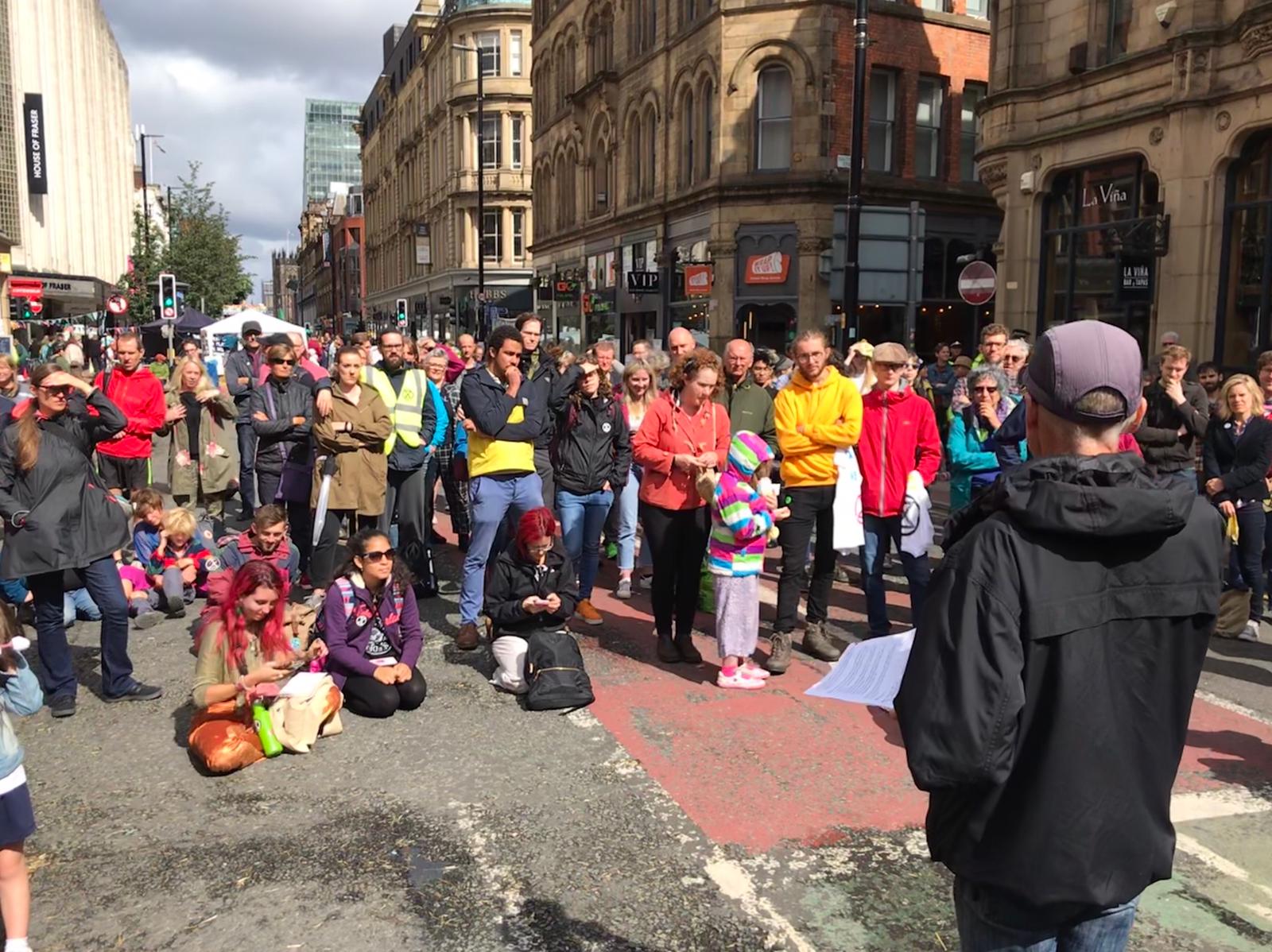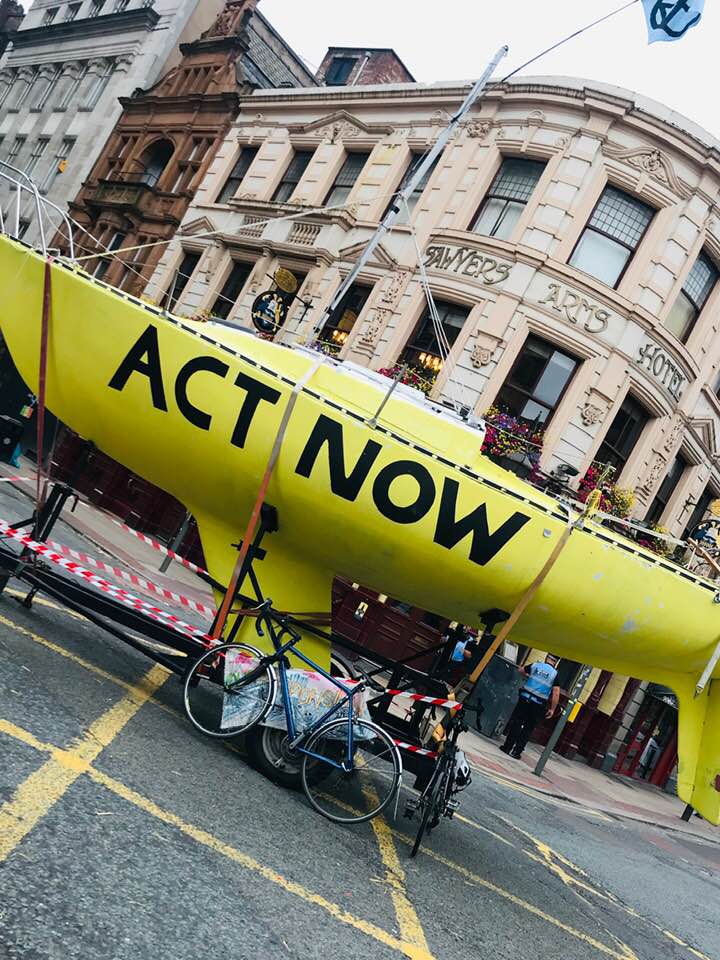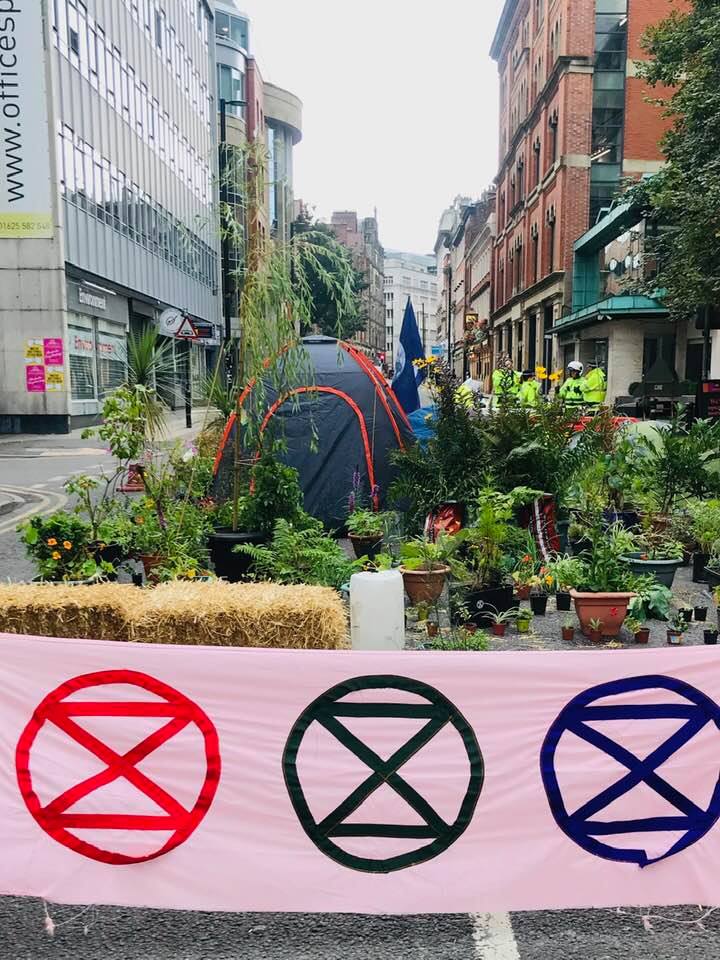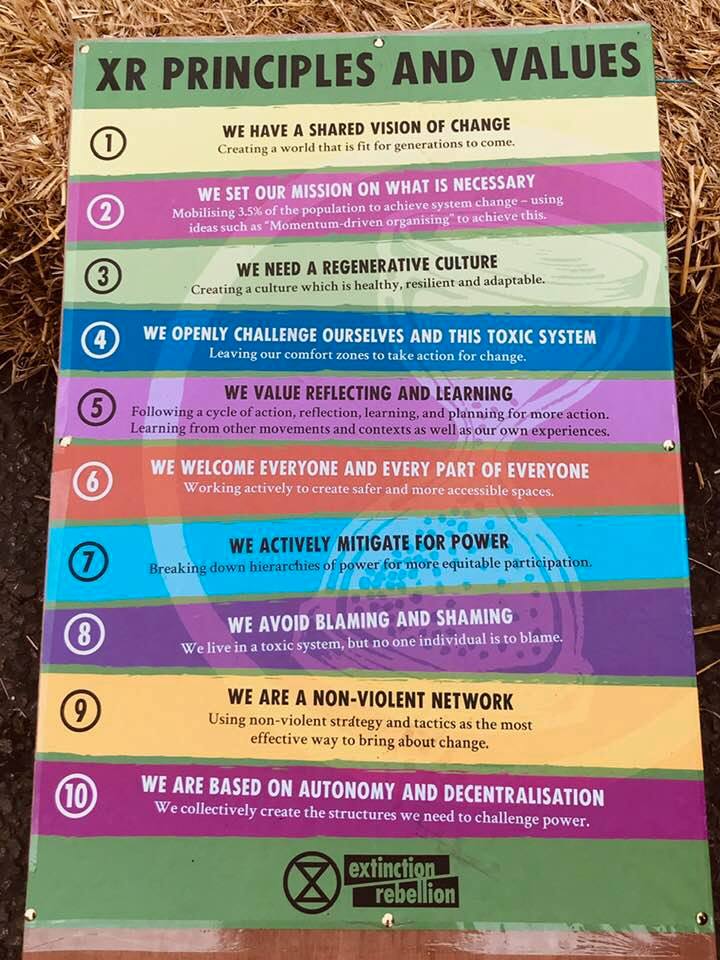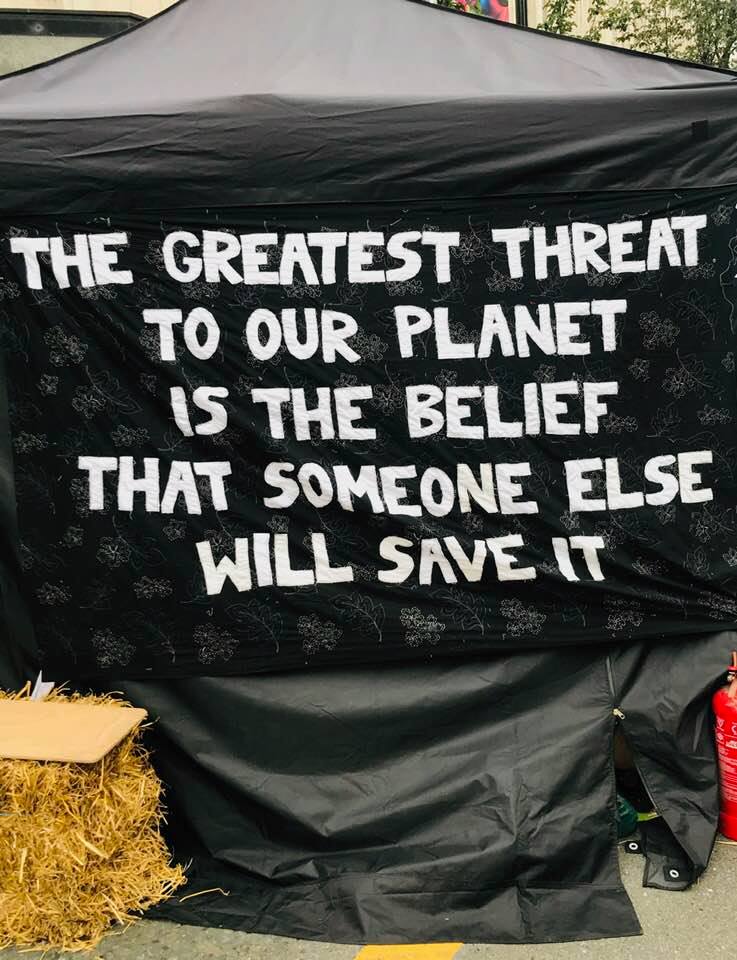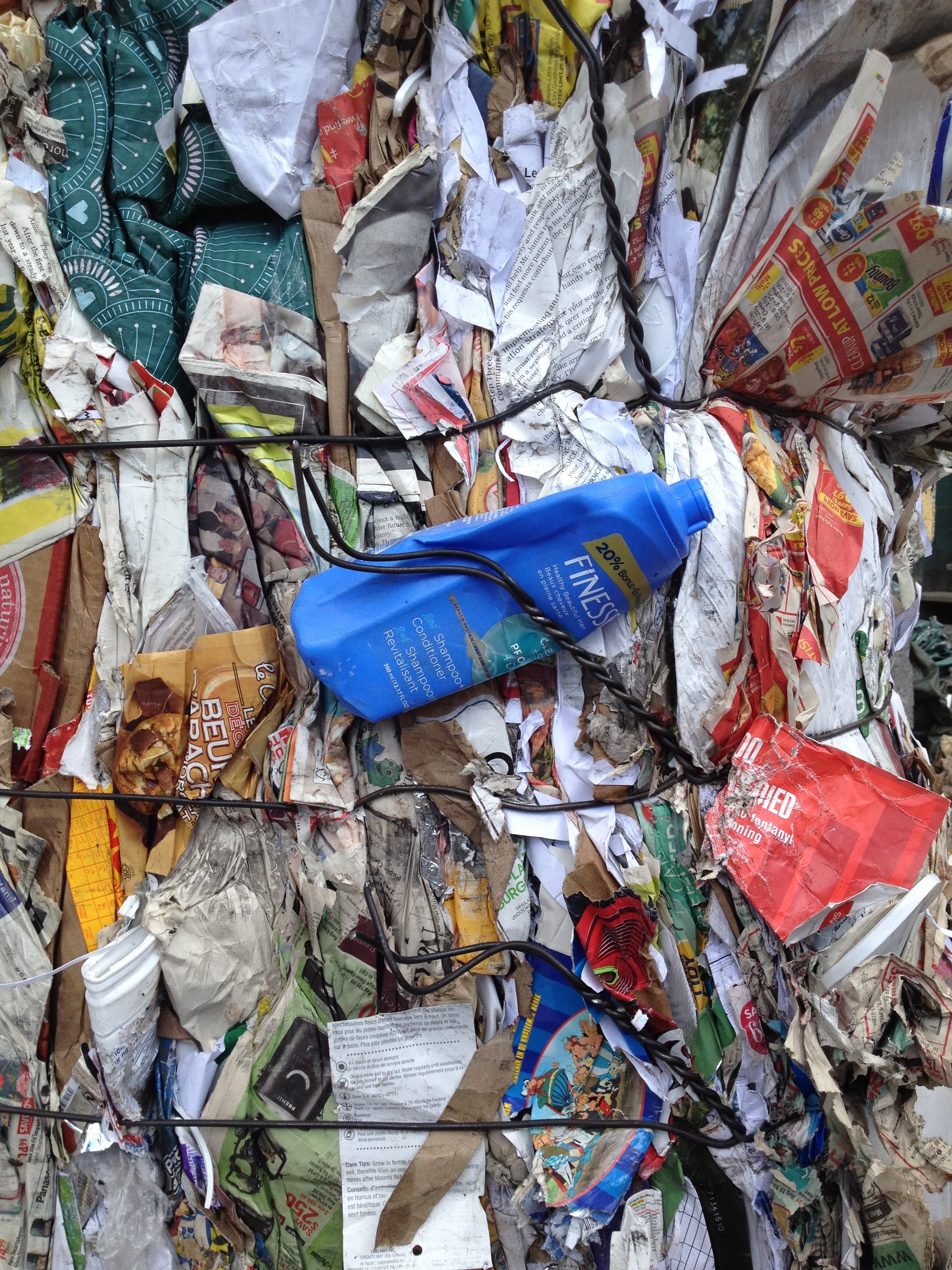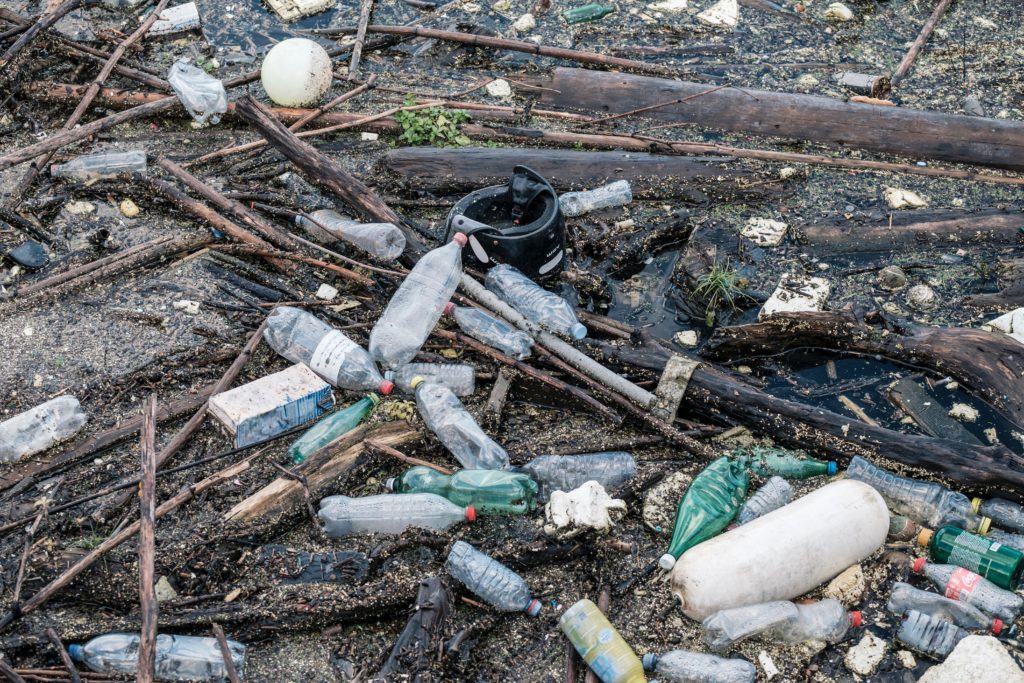Extinction Rebellion Comes to Manchester. Part 2!
It’s been a busy weekend in the City of Manchester, Extinction Rebellion have been out on the streets, bringing their non-violent action climate protest, to a street near you, and what a beautiful Northern Rebellion it has been!
The peaceful protest, which ended yesterday with a ceremony around the big yellow boat situated on Deansgate, has been perfectly executed by the Extinction Rebellion Crew to bring awareness and enjoyment to the citizens of Manchester.
And, happily, thanks to the full cooperation between Greater Manchester Police and the XR organisers, there has been no trouble, and no arrests have been made throughout the duration of the protest.
So, what has this weekend’s activities all been about?
Well, as we are being made painfully aware by images of the burning rainforests in Brazil and the shocking scenes of the huge amount of plastic clogging up our oceans, humanity faces an existential threat and a climate catastrophe not seen since the last mass extinction some 65 million years ago.
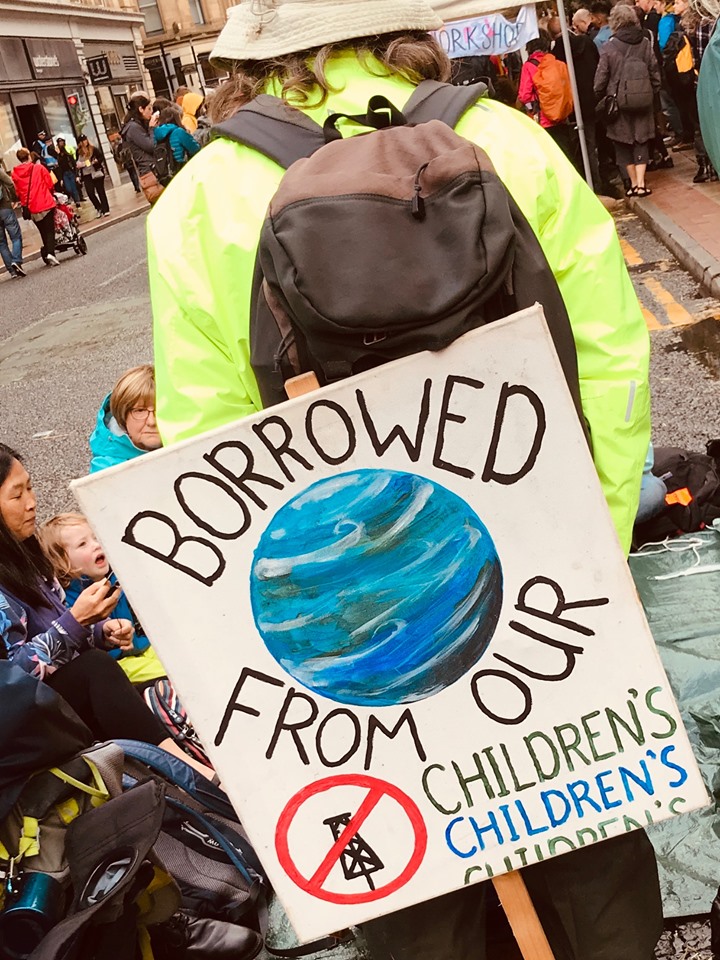
Climate Catastrophe a Threat to Humanity
In a rather sobering report from the WWF scientists, who track the existence of life on earth as we know it, state that humans are responsible for wiping out around 60% of all birds, mammals, fish and reptiles since 1970.
And that this ‘annihilation of wildlife’ threatens the very existence of civilisation on earth.
Speaking to Jo, one of the XR supporters attending the protest at the weekend, it was clear that this message from the scientists is having a profound effect on some, if not all of us, making people like Jo feel compelled to act.
In an interview for Envirolution and questioned on how environmental campaigners can continue to get their message out to those who have not yet woken up to the crisis Jo stated;
“I’m not an activist, I’m a mother of three. I’ve given up my job to do this, because I’m scared and people are scared. Just because they are choosing not to be here, doesn’t mean they are not scared. we need to get more people like me to talk about this as a shared human experience and we need to normalise this and give permission for people to talk about it”.
During the interview, it was clear that Jo was particularly emotional and impassioned about the climate crisis affecting humanity.
She went on to say how apologetic she and the rest of XR were for causing a disruption, and also how she would much rather not have to do this, preferring to have a night in her own bed and see her husband and children to spending sleepless nights on Deansgate.
However, and this was the key to Jo’s personal reasons for taking part in Northern Rebellion, it was all about the human connection to the climate crisis and the connection to each other that spurred Jo on.
And the visibility of protesting in such a high-profile fashion is just one of a series of ways to raise awareness.
Since giving up her job, Jo has also given talks to groups and taken the XR message to the doorsteps of local communities, and she was not afraid to admit the whole thing brings tears to her eyes, which is part of her very appeal, as she engages with you on a very human level.
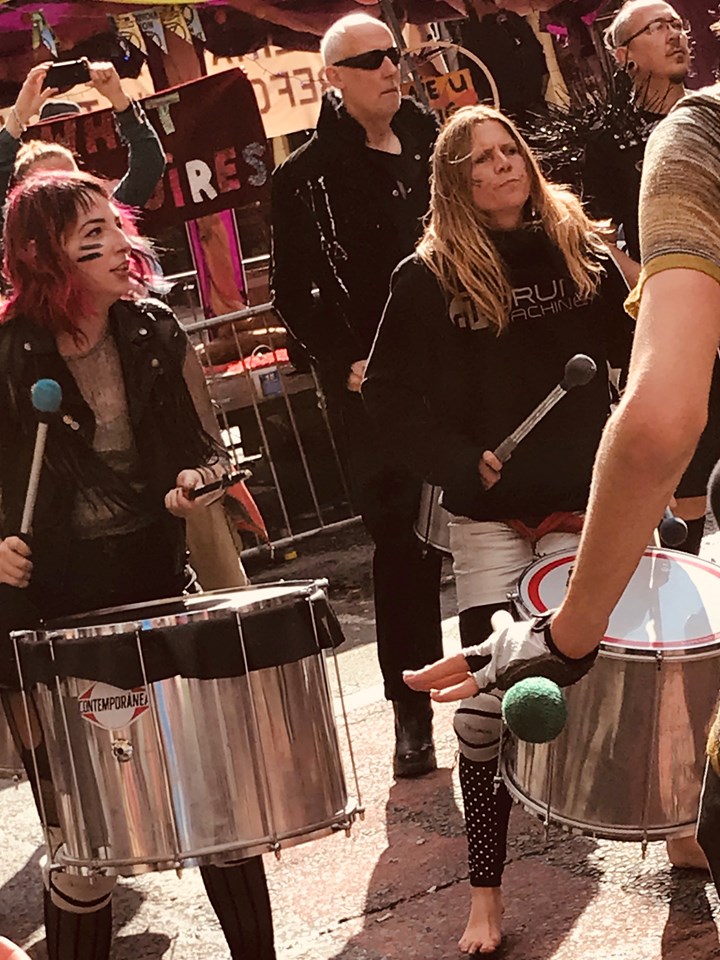
Over Consumption causing the Climate Crisis
And rather poignantly, as you look around Manchester at the shoppers encouraged to ‘buy more stuff’ you see the connection between humanity and the threat to the survival of civilisation are inextricably linked.
‘Bigger, better, cheaper, more, more, more…’ or, ‘buy this and your life will be improved’ are messages we are openly and subliminally fed; in shop windows, on our television screens, on our laptops, audibly on the radio and music streaming services and in magazines and newspapers we read every day.
Increased human consumption of everything means more greenhouse gases are being produced, meaning the earth is heating up which means that ice caps are melting, fires are raging and basically, our fragile eco-system simply can not cope.
All of these changes to our climate are leading to an increase in extreme weather events, rising sea levels and the extinction of a massive range of species as in the WWF report.
What Can Humanity do to Reverse the Impact of Climate Change?
So, what can we, as ordinary human beings, do to reverse the impact of climate change?
Julia Steinberger, Professor of Ecological Economics at Leeds University, studies the fascinating subject of the relationships between the use of resources and the performance of societies.
In her speech in front of a packed crowd on Sunday afternoon, she spoke of the importance of teaching our children critical thinking skills and about questioning the messages we are fed on a daily basis, designed purely to create manipulated thinking.
She spoke about the what we need to live well, and a need for an opposition to consumerism to drive the climate message.
However, and this is the human connection that people like Julia and Jo are so very good at, within her address Julia spoke about mass consumption being the real problem, and rather than expecting us to all give up on our one holiday a year abroad, it is an introduction of frequent flier levies, opposing airport expansion and making more towns and cities traffic free that will have a more wide reaching impact.
She also made reference to the generation of advertisers who promoted smoking as cool and the candy cigarettes that were popular with kids, saying ‘Who are we to ever tell people what to do or what to give up? But what we can do is read the scientific evidence around climate change and try to change our own habits to make that difference’.
So, for example, if somebody does not want to commit to giving up meat entirely, that is their choice, but the fact that they are prepared to reduce their consumption is a step in the right direction and has to be seen as a good thing.
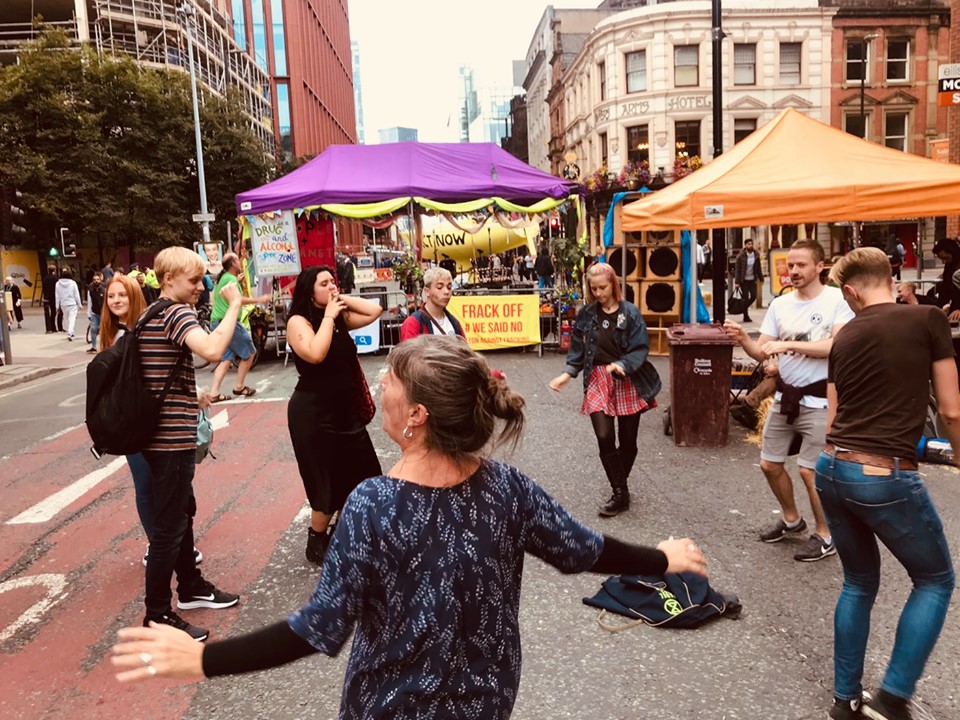
The Joy of XR
And so, as my time at XR Northern Rebellion came to a close, and I marvelled at the impact of the absence of traffic in the centre of Manchester, (no polluted air, the freedom to wander blithely down the middle of the road, children and dogs playing happily), and I felt the deep joy of dancing in the middle of Deansgate to the magnificent Drum Machine, I couldn’t help but think wouldn’t it be wonderful if this atmosphere was replicated on high streets up and down the U.K.
And with lots more planned events and a growing support for the movement, it actually could be.
XR are fully committed to their 3 Demands of the U.K Government, Tell the Truth, Act Now and Citizens Assembly; all they would really like is for more ordinary people like me and you to join them, listen to their message and pick up the baton.
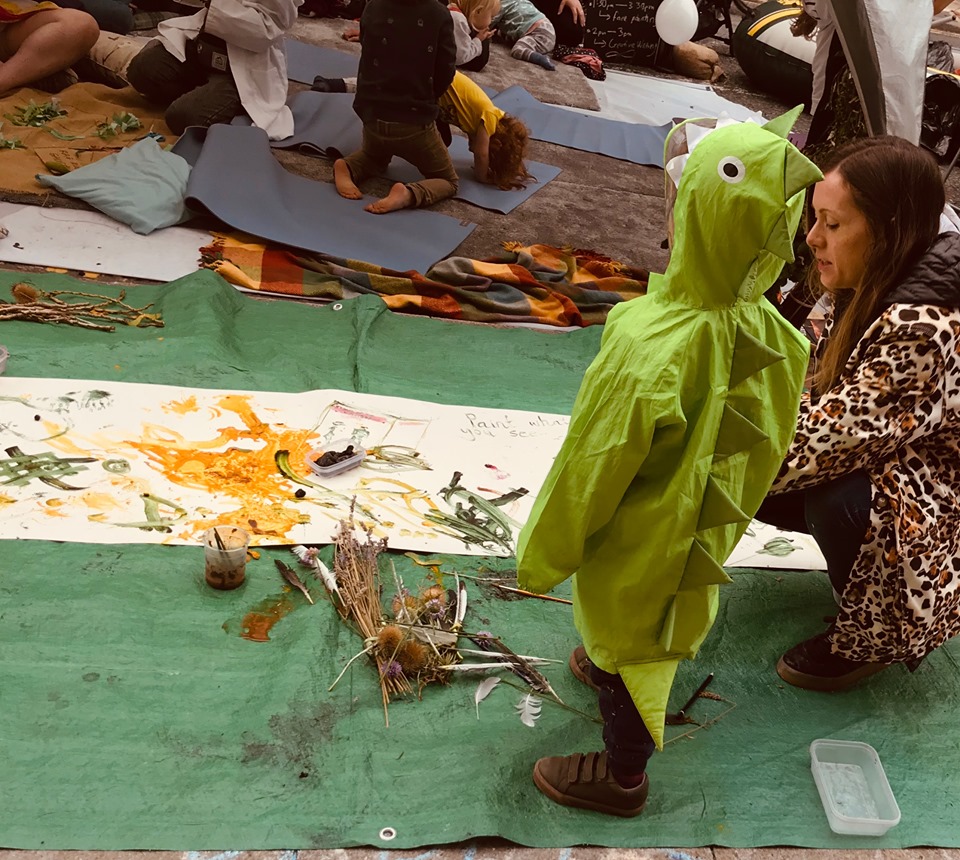
Contact us
So if you want to know more about the XR network or Envirolution with regards to direct non-violent climate action, you can contact us here.
We love to hear your views and ideas, and we are currently busy planning our 10th Envirolution Festival for May 2020, so if you want to get involved, we always have a need for volunteers or local action groups who want to take part! Contact us TODAY to find out more!
